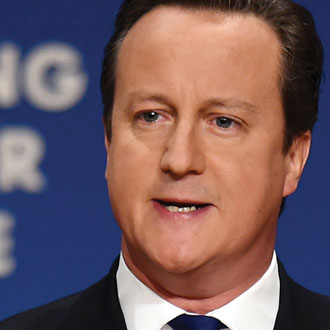GP leaders demand end to seven-day routine access scheme

GP leaders have demanded the Government’s flagship scheme to offer routine appointments on Saturdays and Sundays to be scrapped.
Delegates at the England LMCs conference voted unanimously to ‘immediately’ withdraw the scheme – including halting any plans to include this in the ‘Network DES’ in future years – after hearing it has prevented GPs from delivering essential patient care.
They said that the money pumped into the scheme – worth £6 per patient from CCGs alone – should be recycled into routine care.
Evening and weekend appointments have been gradually introduced since 2014, on the basis of a Conservative Party pledge announced by former Prime Minister David Cameron, and taken forward by former health secretary Jeremy Hunt.
The Government and NHS England have continued to pump money into this scheme with specific pledges being made in the GP Forward View, and CCGs given earmarked funding.
However, Pulse has reported that there has been little take-up across the country.
Dr Anthony O’Brien, from Devon LMC, who proposed the motion, told delegates the scheme has failed to deliver any benefit and threatens out-of-hours services’ sustainability.
He said: ‘Improved access has longer appointments, clinics are often not fully booked, they pay good money and give me a chance to catch up on paperwork on a lazy Sunday afternoon. What’s not to like?
‘It might be good now but what about in the future? The dangers are, out-of-hours services will continue to flounder as they cannot fill their shifts and that will make our jobs worst on a Monday morning.
‘There are no more GPs than there were five years ago but we still have agreed to spread ourselves thinner. Spreading the same amount of jam over a bigger slice of bread loses its flavour.’
He added: ‘Are we degrading our professional status by reducing the time you have during the week to provide continuity of care to the chronically sick and replacing with seeing relatively well patients over the weekend? I think we are.
‘Improved access is a clear and present danger, potentially changing any good, rewarding Monday to Friday job into monotonous clock in clock out widget counting process on a seven-day rota. However, there’s been a lot of money pumped into this. I think we’re deluding ourselves and drinking from a well that will dry up. We’re here to provide good general practice and improved access is certainly not that.’
BMA GP Committee deputy chair Dr Mark Sanford-Wood said: ‘We support this motion. I think it’s implicit that in calling for the end of this scheme we’re also calling for the recycling of that money into general practice and primary care.’
Earlier this year, NHS England primary care director Dr Nikita Kanani told Pulse that the seven-day access will be reviewed to make sure it is ‘sensible’ for practices, as part of the primary care networks.
Also this year, the GP partnership review found extended access services entice GPs away from practices, as the work is ‘easier’.
207 DEVON: That conference calls for the Improved Access Scheme to be immediately withdrawn as:
i. there is no evidence that this scheme is producing any significant benefits
ii. in many areas the scheme is having deleterious effects on staffing emergency out of hours care
iii. incorporating it in the future primary care network DES is likely to lead to many GP practices not signing up for the DES
iv. GPs providing routine appointments seven days a week is a political wish rather than a clinical need and in the light of the crisis facing general practice it is our professional responsibility to explain this to our patients.
Pulse July survey
Take our July 2025 survey to potentially win £1.000 worth of tokens












